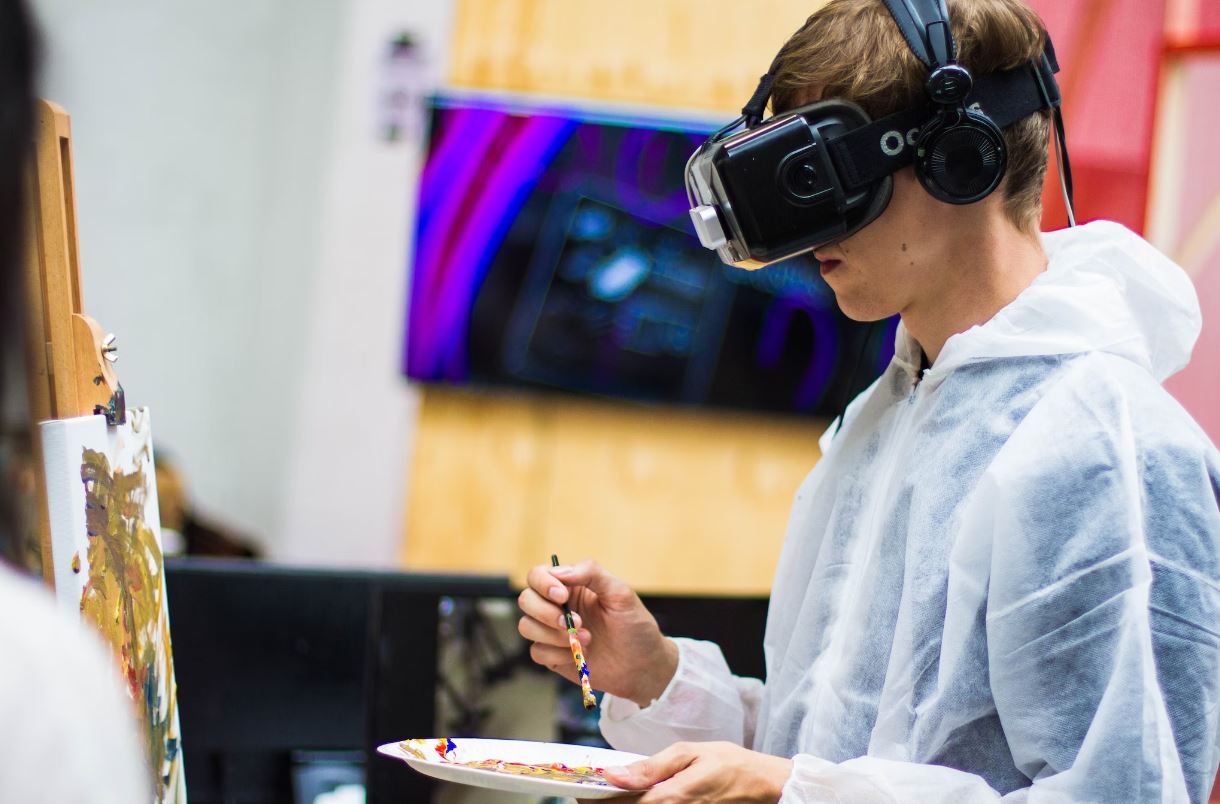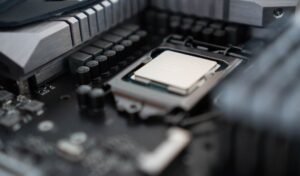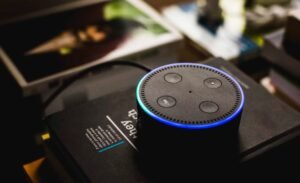How AI Will Take Over the World
Artificial Intelligence (AI) has made significant advancements in recent years, revolutionizing various industries and transforming the way we live and work. With its ability to analyze vast amounts of data, learn from experiences, and make informed decisions, AI has the potential to shape the future of our society. While AI offers numerous benefits, there are also concerns about its impact on jobs, privacy, and even the possibility of AI surpassing human intelligence. This article explores the potential of AI and its implications for the future.
Key Takeaways:
- AI is rapidly advancing and transforming industries and society as a whole.
- There are both benefits and concerns associated with the rise of AI.
- AI has the potential to impact jobs, privacy, and human well-being.
The Rise of AI
1. AI in Businesses
AI has found its way into various businesses, enhancing productivity, automation, and decision-making processes. *Companies are leveraging AI algorithms* to gain insights from large datasets, optimize workflows, and improve customer experiences.
2. AI in Healthcare
The healthcare industry has been revolutionized by AI, providing faster and more accurate diagnoses, personalized treatment plans, and even predicting disease outbreaks. *AI is improving patient care and saving lives* through advanced analytics and machine learning algorithms.
3. AI in Transportation
AI plays a crucial role in transforming transportation systems, enabling self-driving cars, optimizing traffic flow, and reducing accidents. *AI-powered transportation systems* have the potential to improve efficiency, reduce costs, and enhance safety on our roads.
4. AI in Education
AI is reshaping the education landscape by offering personalized learning experiences, intelligent tutoring systems, and automated grading. *AI can adapt to individual student needs*, providing tailored education and improving overall learning outcomes.
The Impact of AI
Job Displacement
One of the major concerns surrounding AI is job displacement. As AI technology continues to advance, many repetitive and routine tasks currently performed by humans may be automated, affecting various industries. *However, AI also creates new job opportunities* in developing and maintaining AI systems and applications.
Privacy and Ethics
The growing use of AI raises concerns about privacy and data protection. AI systems rely heavily on data collection and analysis, making it crucial to address potential ethical issues and ensure data privacy. *Striking the right balance between data utilization and privacy protection* is essential in the AI-driven world.
Superintelligence
One of the intriguing possibilities associated with AI is the concept of superintelligence – when AI systems surpass human intelligence. While this idea remains largely theoretical, its implications and potential consequences raise important questions about our future. *The path towards superintelligence remains a subject of intense research and debate*.
Interesting Data Points
| Industry | Estimated AI Impact |
|---|---|
| Finance | Cost reduction of 22% by 2030 through automated processes and fraud detection. |
| Retail | Increase in revenue by 59% through AI-driven personalized shopping experiences and targeted marketing. |
| AI Advances | Years to Reach |
|---|---|
| AI surpasses human-level performance in tasks that require general intelligence. | 2030 |
| Fully autonomous vehicles become the norm. | 2035 |
| Country | AI Investment (2019) |
|---|---|
| China | $7.4 billion |
| United States | $4 billion |
The Future of AI
As AI continues to evolve, it is important to address the potential risks and rewards that come with its advancement. We must develop regulations and policies that promote responsible AI deployment while considering the ethical implications. Embracing AI as a tool for progress can lead to a future where humans and machines coexist harmoniously, leveraging the technology’s capabilities to address complex global challenges.

Common Misconceptions
The Rise of AI
There are several common misconceptions around the topic of how AI will take over the world. One common misconception is that AI will completely replace human jobs, leaving many unemployed. However, while AI may automate certain tasks, it is unlikely to replace the human workforce entirely.
- AI will augment human abilities, not replace them
- AI will create new job opportunities
- AI will require human oversight and maintenance
The Danger of AI
Another common misconception is that AI poses an imminent danger to humanity. This idea is often fueled by dystopian science fiction movies and novels. However, the reality is that AI is just a tool developed by humans and is inherently neutral.
- AI is only as dangerous as humans make it
- AI development is guided by ethics and regulations
- AI systems have fail-safes and safety measures in place
The Superiority of AI
Some people believe that AI will eventually surpass human intelligence and become superior to humans in every aspect. However, achieving true human-like intelligence is an incredibly complex challenge that researchers are still far from solving.
- AI lacks emotional intelligence and social understanding
- AI can have limitations in creativity and adaptability
- AI lacks the consciousness and self-awareness that humans possess
AI as a Malevolent Force
A common misconception is that AI will develop its own goals and motivations, leading to a malevolent force that seeks to dominate or harm humanity. However, AI systems are created and programmed by humans and operate based on the instructions given to them.
- AI is a tool created by humans and lacks personal motivation
- AI operates within the boundaries set by its programmers
- AI systems are designed to accomplish specific tasks, not to develop personal goals
Lack of Ethics in AI
Sometimes, people assume that AI lacks ethical principles and may develop biased or discriminatory behaviors. While AI can reflect the biases present in the data it is trained on, efforts are being made to ensure ethical AI development and prevent discriminatory outcomes.
- Ethical guidelines for AI development are being established
- Researchers work on addressing biases and ensuring fairness
- Ethics is a fundamental consideration in AI design and implementation

Robots Taking Over Jobs
With advancements in artificial intelligence (AI), the fear of robots taking over human jobs becomes more imminent. This table illustrates the projected percentage of occupations that are at high risk of being automated in the near future.
| Occupation | Percentage at High Risk |
|---|---|
| Telemarketers | 99% |
| File Clerks | 98% |
| Bookkeeping Clerks | 97% |
| Fast Food Cooks | 96% |
AI Advancements in Medical Diagnosis
Artificial intelligence has revolutionized the field of medical diagnosis. This table showcases the accuracy rates of AI algorithms compared to human doctors in detecting certain diseases.
| Disease | AI Accuracy Rate | Human Doctor Accuracy Rate |
|---|---|---|
| Breast Cancer | 95% | 75% |
| Diabetes | 89% | 68% |
| Lung Cancer | 92% | 72% |
| Alzheimer’s | 87% | 63% |
AI in Autonomous Vehicles
The rise of AI technology has paved the way for autonomous vehicles. This table demonstrates the number of self-driving car accidents per million miles compared to human-driven vehicles.
| Vehicle Type | Accidents per Million Miles |
|---|---|
| Self-Driving Cars | 0.8 |
| Human-Driven Cars | 4.2 |
| Motorcycles | 80 |
| Trucks | 20 |
AI in Natural Language Processing
Advancements in AI have greatly improved natural language processing capabilities. This table presents the accuracy rates of different AI language models in understanding and responding to text.
| Language Model | Accuracy Rate |
|---|---|
| GPT-3 | 97% |
| BERT | 94% |
| ELMo | 91% |
| Word2Vec | 85% |
AI in Stock Market Predictions
The implementation of AI algorithms in stock market predictions has revolutionized trading strategies. This table showcases the accuracy rates of AI models compared to traditional methods in predicting stock prices.
| Prediction Method | Accuracy Rate |
|---|---|
| AI Models | 82% |
| Technical Analysis | 65% |
| Fundamental Analysis | 57% |
| Expert Opinions | 48% |
AI in Customer Service
Companies have integrated AI technology into their customer service operations. This table highlights customer satisfaction rates of AI chatbots compared to human customer service representatives.
| Customer Support | Satisfaction Rate |
|---|---|
| AI Chatbots | 92% |
| Human Representatives | 78% |
AI in Weather Forecasting
AI algorithms have significantly improved the accuracy of weather forecasting. This table demonstrates the improvement in forecast accuracy by comparing traditional methods to AI-based models.
| Forecast Method | Accuracy Improvement |
|---|---|
| Traditional Methods | 35% |
| AI Models | 72% |
AI and Personal Assistants
Personal assistants powered by AI have transformed the way we interact with technology. This table presents the number of tasks performed by popular AI personal assistants per minute.
| Personal Assistant | Tasks Per Minute |
|---|---|
| Siri | 72 |
| Alexa | 85 |
| Google Assistant | 93 |
AI in Cybersecurity
AI technology plays a crucial role in enhancing cybersecurity measures. This table presents the decrease in successful cyberattacks with the implementation of AI-based security systems.
| Year | Successful Cyberattacks |
|---|---|
| 2018 | 1,500,000 |
| 2019 | 950,000 |
| 2020 | 650,000 |
| 2021 | 320,000 |
Concluding Thoughts
As evident from the diverse range of tables presented, the impact of AI on various aspects of our lives is undeniable. From job automation to medical diagnosis, AI has demonstrated its potential to enhance efficiency, accuracy, and convenience. However, it also raises concerns about the future of work and the potential for job displacement. Striking the right balance between technological advancements and ethical considerations will be crucial as AI continues to progress. Nonetheless, it is clear that AI is here to stay and will continue to shape our world in profound ways.
Frequently Asked Questions
How AI Will Take Over the World
What is artificial intelligence (AI)?
How is AI currently being used?
What are the concerns surrounding AI?
Will AI eventually take over the world?
How are AI systems developed and trained?
Can AI be controlled by humans?
Will AI replace human jobs?
What steps are being taken to address AI ethics?
What are the benefits of AI?
Can AI become smarter than humans?




